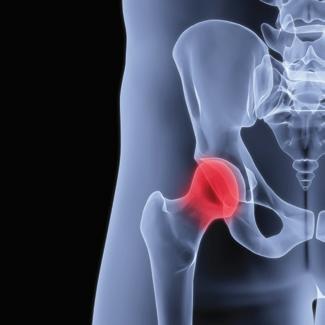
6 minute read
MARK NEPO
Mark Nepo on Living a Wholehearted Life
by Sandra Yeyati
Advertisement
Bestselling author, poet, cancer survivor and inspirational spiritual teacher Mark Nepo has published 22 books and made numerous appearances on Oprah Winfrey’s Super Soul Sunday program. His latest book, published this year, is The Book of Soul: 52 Paths to Living What Matters.
What do you mean by, “To be broken is not a reason to see all things as broken?”
In my cancer journey, after I had a rib removed from my back and a botched chemo treatment, I found myself in a Holiday Inn getting sick every 20 minutes, frightened and in pain, not sure what to do. As the sun started coming up, I realized that while this was happening to me, it wasn’t happening to everyone. Somewhere nearby, a baby was being born and a couple was making love for the first time. Somewhere an estranged parent and grown adult child were talking for the first time after many years. That’s when it came to me that to be broken is no reason to see all things as broken, because the wholeness of life is what is healing. When I am broken, I need the company of those who know what it’s like to be broken, but I also need everything not broken to heal. When I’m afraid, I need the company of those who know what it’s like to be afraid, but I need everything safe to heal.
How does acceptance strengthen our resilience?
Acceptance is not resignation. Acceptance begins with the hard task or practice of seeing things as they are. When we can see things as they are—clearly—then we have real choices. So, if I am afraid and I give over to my fear, then I’m afraid of everything. If I can see things as they are, I can see more clearly exactly what I’m afraid of, and then I have real choices of what my next steps are. Acceptance lets us move forward.
What practices do you recommend?
Two of the oldest medicines known to human beings are our ability to hold and our ability to listen. Even though there are times when I have been told things I didn’t want to hear, there has never been a time that I have listened or been listened to that hasn’t been healing. There has never been a time when I have held or been held that hasn’t been healing.
Another practice is being completely present and holding nothing back. We tend to drift up into our minds, especially when afraid, and one of the reasons that all of the different traditions have breathing or meditation practices is to return us to where we are. If I start worrying, if I start getting lost in my fear, I try to look at whatever is before me. I’m in my study as I’m talking to you. I’m looking out the window. I’m seeing the leaves on the trees. I take a breath and try to give my full attention to whatever is before me, and then I start getting grounded again.
The thing is, we’re never going to be free of fear or pain, because that’s part of living, but when we can be present and practice being real and authentic, then the fear lives in us and we don’t live in the fear.
What is the power of authentic expression?
One of the most powerful things we can do when feeling powerless is admit the truth. When I was a little boy, I was so captivated by a butterfly that I wanted to look at it closely. I didn’t want to hurt it, so I carefully cupped it in my hands. But then I realized that as long as I had it cupped in my hands, I couldn’t see it. I had to let it go to see its magnificent, colorful wings. Forty years later in my cancer journey, I realized that this [experience] was a teacher about expression. When we keep things closed inside us, they pound and make a lot of noise, but we don’t see them. Once we express them, we’re lighter and we see their true colors.
For more information, book readings and conversations, visit MarkNepo.com. For webinars, visit Live.MarkNepo.com.
Sandra Yeyati, J.D., is a professional writer. Reach her at SandraYeyati@gmail.com.


the pandemic intensifying the normal academic, social and hormonal turmoil of these pivotal years. It’s no wonder teens are reporting record levels of stress, anxiety and depression: In a Pew Research survey, 70 percent of teens said mental health was a major problem among their peers—and that was in February, before the pandemic hit. A recent online poll found that most teens are worried that the pandemic will affect their family’s physical or financial health and that many feel lonelier than usual and worry about losing ground in academics and activities.
Extending a helping hand to teens is not always well received. They can be notoriously resistant to advice, even when they’re stressed, partly because of their brain chemistry, explains Gail Saltz, M.D., clinical associate professor of psychiatry at the New York Presbyterian/Weill Cornell School of Medicine and host of the Personology podcast. A teen’s highly active amygdala makes risk-taking a thrill even as the frontal lobe that weighs consequences is not fully developed, while at the same time, a teen seeks independence—an identity and freedom to be more like an adult. “This combination means their capacity and interest in taking parental direction is not there,” she says. “As a result, parents in reaction often get louder and more insistent in telling them what to do, which fails and drives them further away.”
The best way to communicate with a stressed teen, say many child psychologists, is to listen deeply while letting them do most of the talking, and offering sympathetic support while withholding judgment. Instead of giving advice, “Validate your teen’s experience and attempt to step into their shoes. Let your teen know that you hear them, that you support them in their decisions and ask your teen what you can do to help them,” advises clinical psychologist Alyssa Austern, Psy.D., of Chatham, New Jersey. Other steps can help a teen weather this time of high stress:
1Back up the basics. Make sure there’s healthy food and snacks in the fridge. Encourage teens to exercise daily, especially outdoors, and support them in
cottonbro/Pexels.com
Stressed-Out Teens
Ways to Help Them Chill
by Ronica O’Hara
Being a teenager is never easy, but it’s even harder these days, with the upheaval of
getting eight to 10 hours of sleep.
2Make self-compassion a family habit. The self-compassion approach to self-care, which is rapidly gaining ground among psychologists, has three elements: treating ourselves as kindly as we would a dear friend, realizing that many other people have the same problems so we’re not alone, and mindfully and nonjudgmentally observing our emotional state.
This method has proven to be helpful not just for adults, but for teens, as well. A University of Edinburgh meta-analysis that synthesized 17 studies of more than 7,000 teens in six countries concluded that those with high levels of self-compassion had lower levels of stress caused by anxiety and depression. University of North Carolina researchers found that teens exhibited lower stress, anxiety and depression, as well as more resilience and gratitude, after six self-compassion sessions.
A good place for parents to start is with themselves: If they are anxious, overprotective or fearful, a teen is likely to follow suit, reports a study in the Journal of Abnormal Child Psychology. Helpful books, websites and programs for both teens and adults can be found at SelfCompassion.org, operated by Dr. Kristin Neff, an associate professor of educational psychology at the University of Texas at Austin who was a pioneer in the concept.










